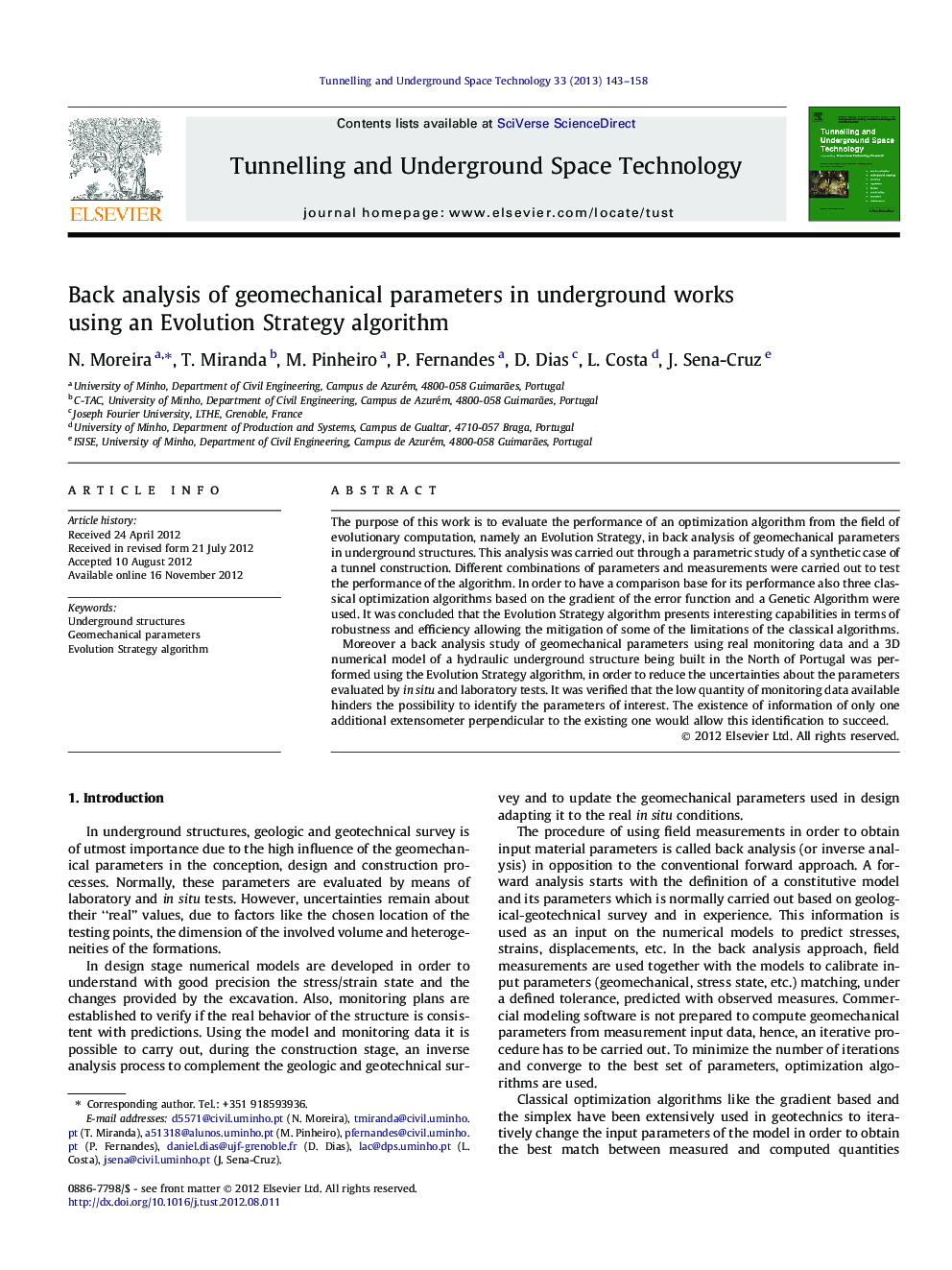| Article ID | Journal | Published Year | Pages | File Type |
|---|---|---|---|---|
| 313111 | Tunnelling and Underground Space Technology | 2013 | 16 Pages |
The purpose of this work is to evaluate the performance of an optimization algorithm from the field of evolutionary computation, namely an Evolution Strategy, in back analysis of geomechanical parameters in underground structures. This analysis was carried out through a parametric study of a synthetic case of a tunnel construction. Different combinations of parameters and measurements were carried out to test the performance of the algorithm. In order to have a comparison base for its performance also three classical optimization algorithms based on the gradient of the error function and a Genetic Algorithm were used. It was concluded that the Evolution Strategy algorithm presents interesting capabilities in terms of robustness and efficiency allowing the mitigation of some of the limitations of the classical algorithms.Moreover a back analysis study of geomechanical parameters using real monitoring data and a 3D numerical model of a hydraulic underground structure being built in the North of Portugal was performed using the Evolution Strategy algorithm, in order to reduce the uncertainties about the parameters evaluated by in situ and laboratory tests. It was verified that the low quantity of monitoring data available hinders the possibility to identify the parameters of interest. The existence of information of only one additional extensometer perpendicular to the existing one would allow this identification to succeed.
► Optimization algorithms were applied in a synthetic geotechnical problem. ► The ES algorithm has interesting and competitive capabilities in back analysis. ► ES algorithm was tested in the real case of Bemposta hydroelectric scheme. ► Reduced monitoring data. ► One additional extensometer could allow the identification of the actual parameters.
